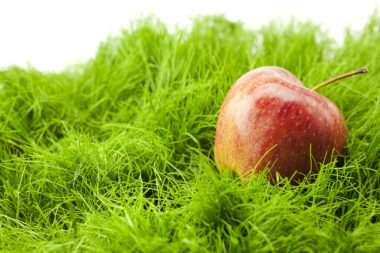

Why do some doctors say that vitamin C supplements are unnecessary and even harmful?
In the public healthcare system, there is often a cool attitude towards nutritional supplements such as vitamins and minerals. A common argument against nutritional supplements is that “you get what you need if you eat a varied diet”. Unfortunately, this mantra is no longer true. With today’s industrially processed food and depleted soils, our food does not contain enough nutrients and therefore we need supplements of several vitamins and minerals to maintain a well-functioning immune system. And a strong immune system can be beneficial in these times! Unfortunately, conventional medicine is not so focused on nutrition, so it is up to individual doctors’ own interests to further educate themselves. Preventing and curing diseases with the nutrients the body needs for optimal function is not so interesting.
Both C and D vitamins are needed, according to a significant amount of research, in larger amounts for immune function than the daily recommended intake currently supported by the National Food Agency. The levels supported by the agency are the amounts needed to avoid scurvy (vitamin C) and rickets (vitamin D). The newer amount of research showing the importance of both C and D vitamins for immune function has not yet been fully embraced. In addition to the well-known function of vitamin C, to prevent scurvy by participating in the formation of stable collagen, vitamin C has a comprehensive impact on our immune system. It strengthens the immune system in many different ways and has antiviral, anti-inflammatory, and histamine-reducing effects. Formation and maturation of B and T lymphocytes, antibodies, and phagocytes are enhanced, all of which contribute to an effective and broad immune response. Vitamin C also improves the quality of the skin and enhances the healing ability of all tissues. It is the body’s most powerful antioxidant and counteracts oxidative stress that can otherwise damage our tissues. Disease, pollution, toxins, stress, anxiety, and more increase oxidative stress in the body, and more antioxidants are needed as a counterbalance.
Almost all mammals produce their own vitamin C in the liver from glucose. Amphibians and reptiles also produce their own vitamin C from glucose, but in their kidneys. Most primates, including humans, and guinea pigs have lost this ability. Somewhere in the course of evolution, the gene that codes for the last enzyme in the vitamin C synthesis pathway lost its function through a mutation. We have the gene, but it doesn’t work. Instead, we depend on getting enough vitamin C through the food we eat, daily and preferably spread out over the day. Animals produce vitamin C in much higher doses than we can get from food. Their production increases dramatically when they are exposed to stress, such as illness, as enormous amounts of vitamin C are consumed during stress.
The fact that vitamin C is a powerful antioxidant also makes it very fragile. It oxidizes easily and becomes ineffective. Vitamin C is therefore very sensitive to heating, processing, and oxygen exposure. We should therefore preferably eat large amounts of raw vegetables, fruits, and berries to get as much as possible. If we want to reach plasma levels similar to the production of animals and protect ourselves against increasingly widespread oxidative stress, daily supplementation of several grams is required.
In 2019, a Swedish research group published a report suggesting that antioxidants increase metastasis formation in mice with lung cancer. The study used two different antioxidants, N-acetylcysteine and a water-soluble form of vitamin E, Trolox (vitamin E is normally fat-soluble). The same group had published a similar report in 2015, showing that the same two antioxidants increased metastasis formation in mice with malignant melanoma. These studies have been heavily criticized, including by Professor Emeritus Per-Arne Öckerman, for using one or two antioxidants. According to Öckerman, these two substances have no or negative effects on cancer, and it is especially not possible to investigate the effect of individual antioxidants, as a wide range of different antioxidants that work together is needed. General conclusions for all antioxidants cannot be drawn from these studies. There are approximately 300 antioxidants (see article on oxidative stress), of which vitamin C is one of the more powerful ones. There is a wealth of research showing that abundant antioxidants and specifically high doses of vitamin C, both orally and intravenously, can prevent and cure cancer, lung inflammation, sepsis, and other diseases.
The immune system and the body’s metabolism are very complex, so many different factors affect our health, such as gut flora, diet, nutrition, social contact, stress, anxiety, etc. We also need many different antioxidants that work together, so it is important that we eat a lot of raw food, fruit, berries, and vegetables that are not cooked. Together with supplements of vitamin C, vitamin D, selenium, magnesium, zinc, fatty acids, etc., we get a good foundation for building a well-functioning immune system. Therefore, with reference to strong research, one can safely take 2-5 grams of vitamin C per day, preferably spread over 4 times. This is a quarter of what a goat normally produces! Don’t forget plenty of vitamin D during the winter months! When feeling under the weather, increase the dose of vitamin C and take it more often!
- Wiel et al, 2019
- Le Gal et al, 2015



















































